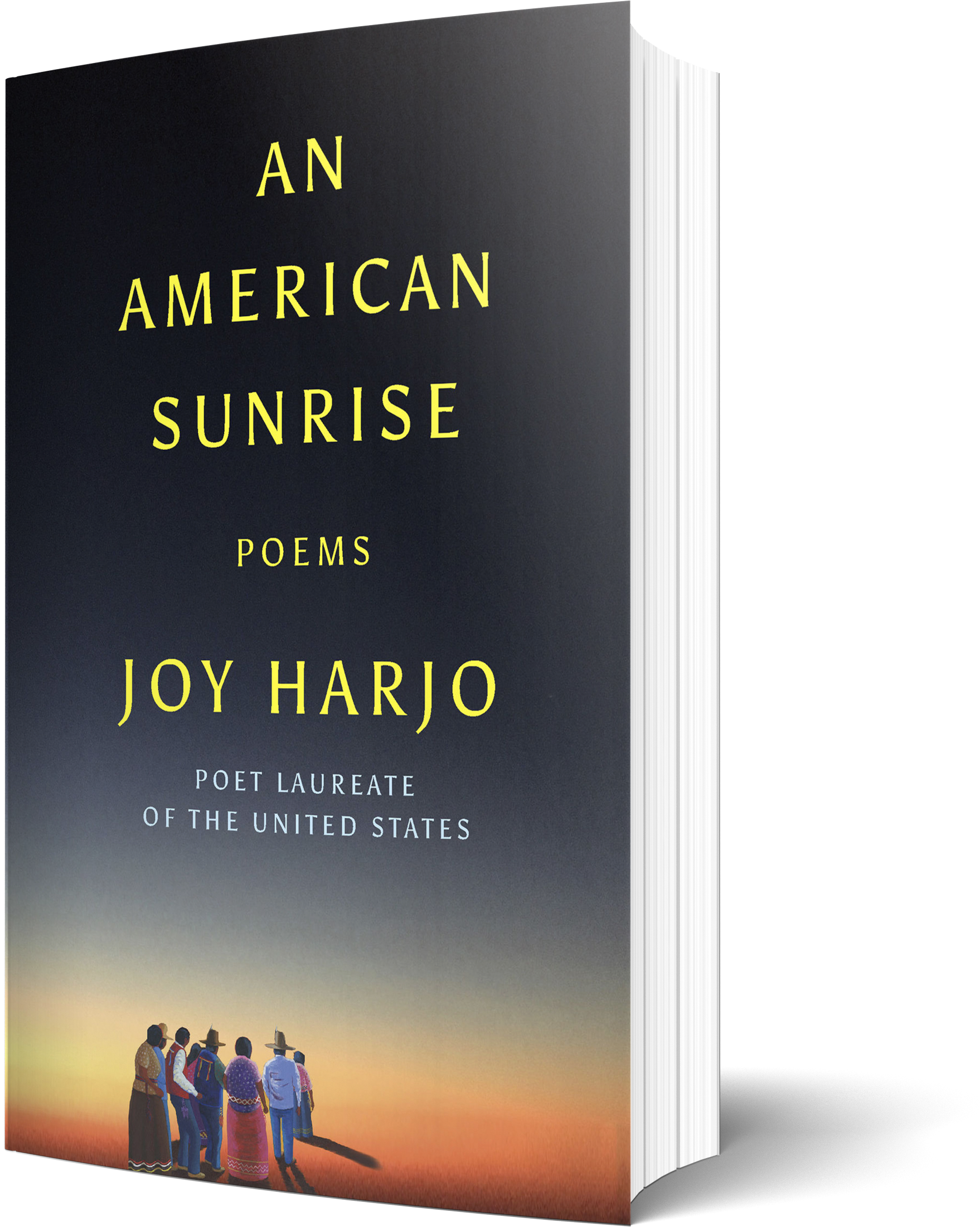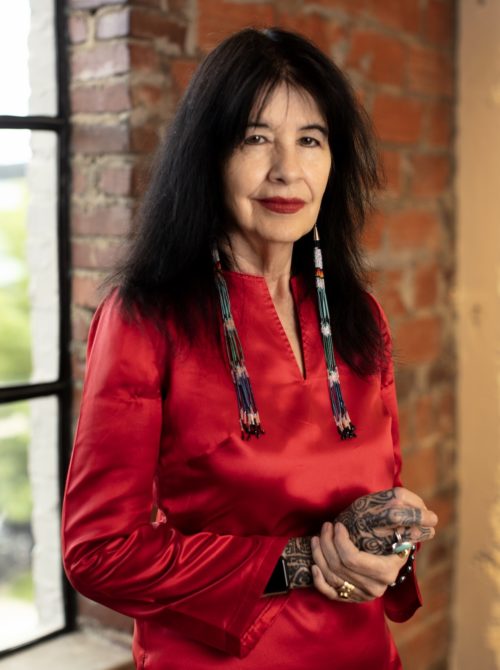— Joy Harjo, “An American Sunrise”
Big Read Lakeshore 2021 Book
An American Sunrise
Poems
Joy Harjo

"I returned to see what I would find, in these lands we were forced to leave behind.”
Book Summary
Writer, musician, and current Poet Laureate of the United States Joy Harjo was born in Tulsa, Oklahoma, and is a member of the Muscogee (Creek) Nation. An American Sunrise—her eighth collection of poems—revisits the homeland from which her ancestors were uprooted in 1830 as a result of the Indian Removal Act. It is a “profound, brilliantly conceived song cycle, celebrating ancestors, present and future generations, historic endurance and fresh beginnings,” wrote critic Jane Ciabattari. “Rich and deeply engaging, An American Sunrise creates bridges of understanding while reminding readers to face and remember the past” (Washington Post). Harjo’s many awards include a Lifetime Achievement Award from the Native Writers’ Circle of the Americas; the William Carlos Williams Award from the Poetry Society of America; the Wallace Stevens Award from the Academy of American Poets; and two National Endowment for the Arts Creative Writing Fellowships. “To read the poetry of Joy Harjo is to hear the voice of the earth, to see the landscape of time and timelessness, and, most important, to get a glimpse of people who struggle to understand, to know themselves, and to survive” (Poetry Foundation). “Joy Harjo is a giant-hearted, gorgeous, and glorious gift to the world," said author Pam Houston. "Her belief in art, in spirit, is so powerful, it can't help but spill over to us—lucky readers.”
About The Author
Joy Harjo

Joy Harjo is an internationally renowned performer and writer of the Muscogee (Creek) Nation. She is serving her second term as the 23rd Poet Laureate of the United States.
The author of nine books of poetry, including the highly acclaimed An American Sunrise, several plays and children’s books, and two memoirs, Crazy Brave and Poet Warrior, her many honors include the Ruth Lily Prize for Lifetime Achievement from the Poetry Foundation, the Academy of American Poets Wallace Stevens Award, two NEA fellowships, and a Guggenheim Fellowship. As a musician and performer, Harjo has produced seven award-winning music albums including her newest, I Pray for My Enemies. She is Executive Editor of the anthology When the Light of the World was Subdued, Our Songs Came Through — A Norton Anthology of Native Nations Poetry and the editor of Living Nations, Living Words: An Anthology of First Peoples Poetry, the companion anthology to her signature Poet Laureate project. She is a chancellor of the Academy of American Poets, Board of Directors Chair of the Native Arts & Cultures Foundation, and holds a Tulsa Artist Fellowship. She lives in Tulsa, Oklahoma.
Reviews
“[A] resplendent and reverberating new volume.… Harjo’s bracing political perspective is matched by timeless wisdom.… In clarion, incantatory poems that recalibrate heart and mind, Harjo conveys both the endless ripples of loss and the brightening beauty and hope of the sunrise.”
— Booklist
“While the subject matter of her new poems continuously hits you in the gut, Harjo brings a sense of resilience to that dark history.”
— Christian Allaire, Vogue
“If you only read one book of poems this summer, make it An American Sunrise…. Every step of the journey is deeply moving… Rich and deeply engaging, An American Sunrise creates bridges of understanding while reminding readers to face and remember the past.”
— Elizabeth Lund , Washington Post
“Radiant.… [A] profound, brilliantly conceived song cycle, celebrating ancestors, present and future generations, historic endurance and fresh beginnings.”
— Jane Ciabattari, BBC
“Full of celebration, crisis, brokenness, and healing.”
— Daisy Fried, New York Times
“[Joy Harjo’s] poems are accessible and easy to read, but making them no less penetrating and powerful, spoken from a deep and timeless source of compassion for all.… [A] stark reminder of what poetry is for and what it can do.”
— Craig Morgan Teicher, NPR
